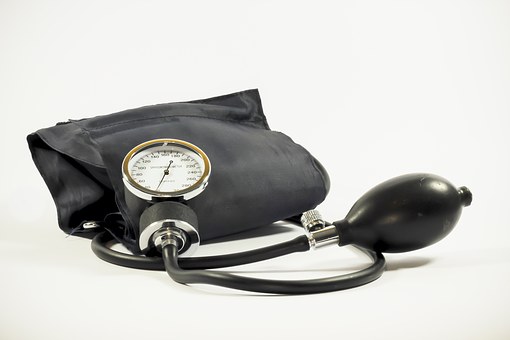If you are aspiring to work in the healthcare industry, acquiring a college education is more likely to get you an interview with a healthcare administrator than not having one.
Opportunities Increase with a College Education
While there are some occupations that offer a decent pay without a college degree, the healthcare industry will seriously consider an applicant for a Patient Care Technician (PCT) who has some type of college education.
While a college degree is not required to work as a PCT, one still needs to undergo a sufficient amount of training. A PCT must have completed his or her high school education. However, the more knowledge you have, the more likely you’ll not only be selected for an interview, but possibly chosen over other applicants!
What is Expected of a Patient Care Technician?
 Because PCT’s main responsibilities involve working directly with patients, a certain amount of basic training that involves caring for patients is mandatory. PCTs play a vital role in the healthcare system because they are responsible for seeing that patients are well taken care of to the very detail of making sure their bedding is sanitary. You can expect to assist patients with using the restroom, bathing, and if necessary feed them—things that a Registered Nurse may not have the time to look into due to his or her own weight of responsibilities. This is why most PCTs are referred to as Nursing Assistants or Nursing Aides.
Because PCT’s main responsibilities involve working directly with patients, a certain amount of basic training that involves caring for patients is mandatory. PCTs play a vital role in the healthcare system because they are responsible for seeing that patients are well taken care of to the very detail of making sure their bedding is sanitary. You can expect to assist patients with using the restroom, bathing, and if necessary feed them—things that a Registered Nurse may not have the time to look into due to his or her own weight of responsibilities. This is why most PCTs are referred to as Nursing Assistants or Nursing Aides.
PCTs jobs involve a considerable amount of time with patients and as a result, a more personable relationship can be built between the PCT and the patient. This is one of the reasons why it’s important to learn the basic fundamentals of patient care and treatment.
PCTs are often hired as the primary caretaker for residential homes. In such cases, their responsibilities can extend into more physical activities like repositioning patients from their bed to their wheelchairs and transporting them to doctor appointments. Taking and monitoring a patient’s vital signs and dispensing medication may also be among a PCT’s responsibilities.
How Do You Know if Being a Patient Care Technician is Right for You?
Patient care is not just a job. It’s a service. To be a PCT, you need to be comfortable working with people. Caring for people should not be looked at as a task. It is recommended that students have a sincere drive to want to help people. Otherwise, the care and service that you provide may not be genuine. Caring for people who are not able to take care of themselves is a noble profession, and getting the best education possible to ensure that you’re performing as one of the best healthcare professionals in the industry is key. This starts with finding the right college.
Florida National University’s Patient Care Technician Certificate
Florida National University (FNU) offers a Patient Care Technician certificate that you can earn in approximately 8 months.
FNU is a regionally accredited university located in the South Florida area with two campuses in Hialeah and Miami along with a Training and Online Learning Center. Learn more about our story here.
The Patient Care Technician Certificate offered by FNU is structured to prepare students for an entry-level position as a patient care assistant. After successfully completing the 8-month program on a full-time basis, graduates of this program will be fully prepared to take the certification exam.
Getting Certified as a Patient Care Technician
The most important step in determining eligibility for taking your Patient Care Technician exam is to complete a training program. FNU already has you covered for that! The second step is all up to you. You’ll be expected to put in the hard work and dedication it takes to complete the program.
What Can Students Expect When Enrolled in FNU’s PCT Program?
In FNU’s Patient Care Technician certificate program you’ll take courses that will give you a better understanding of medical terminology, hospital procedures and nursing clinical practices. You’ll be required to take two credit hours of Anatomy and Physiology before learning the basic fundamentals of an EKG as well as phlebotomy and injections.
Learning about Adult and Geriatric Care
PCTs take care of patients of all ages. However, FNU feels that it is important that students get a better understanding of adult and geriatric care since this is the population that is projected to need PCT services the most. The United States Department of Labor Bureau of Labor Statistics states that 41% of nursing assistants (PCTs) work in nursing care facilities and 25% work in hospitals with the remaining percentage working in home healthcare services, continuing care retirement communities, and for the government.
The Bureau also projected an 18% growth in this profession due to the aging baby-boomer population that’s increasing. Research suggests that healthcare facilities will also require more assistance from PCTs to assist their nurses.
A Little More about FNU’s PCT Certificate Program
In addition to the 20 credit hours of required courses, students will need to complete 120 hours of clinical practice and three seminar courses in the following subjects:
- Cardiopulmonary Resuscitation
- HIV/AIDS
- PDT Seminar
Students will also need to provide seminar completion of HIPPA, BLS, and OSHA.
When in Doubt, Get a College Education!
Earning a college education will open up doors to your future providing you with more opportunities that you might not have had with a high school diploma. Enrolling in Florida National University’s Patient Care Technician certificate program will enrich your academic learning. It also provides you with the tools to improve your professional life. It’s also a great resume booster!
FNU: Making Your College Education Affordable
FNU’s offers financial aid services for students who might be struggling with paying for their college education. We’ll assist you in applying for federal aid as well as any scholarship opportunities that you might be eligible for.
Contact our university to enroll in the next Patient Care Technician course today!



